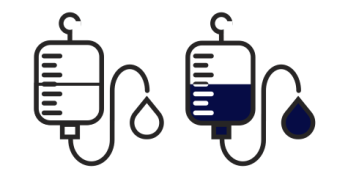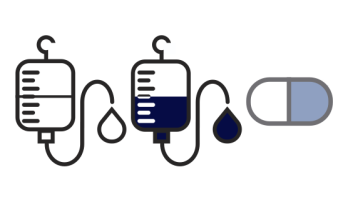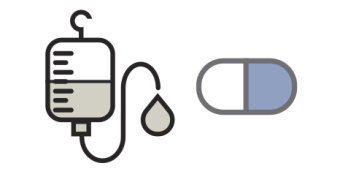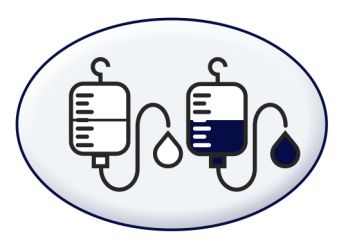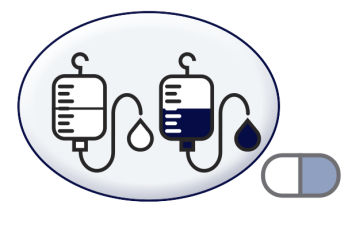
Testing New Treatments for People with High-Risk Acute Myeloid Leukemia (AML) Who Have Not Started Treatment
What is the purpose of this clinical trial?
| Patients are matched with this clinical trial based on their biomarker test results in the myeloMATCH study. This treatment trial is for adults (ages 18-59) with high-risk AML who have not started treatment yet. Doctors consider AML high risk if it has certain biomarkers that can make it harder to treat. |
Treatment plans for AML often involve several phases of treatment. The first phase aims to get rid of as many leukemia cells as possible. It helps make it easier for further treatment to keep the cancer under control.
Usually, the first treatment patients receive for AML is a combination of 2 chemotherapy drugs, daunorubicin and cytarabine.
The purpose of this study is to learn if other options for first treatment may work better for people with high-risk AML. The study doctors will test 4 new treatments and compare them to the usual chemotherapy.
There is evidence that the 4 new treatments being tested in this trial are safe, and any of them may be better than the usual chemotherapy at getting rid of leukemia cells.
This trial is set up to find out:
- If the study treatments are better than the usual chemotherapy at getting rid of leukemia cells in adults with high-risk AML
- What side effects patients have from the study treatments
Why is this trial important?
Knowing AML is high-risk gives doctors more information about the cancer and how to treat it. People with high-risk AML may benefit from a different approach to treatment. Improving options for people in the first phase of treatment could make further phases of treatment more successful.
Who can be in this trial?
This trial is for adults ages 18-59 with high-risk AML.
This trial may be for people who:
- Had biomarker testing as part of the myeloMATCH study
This trial is not for people who:
- Already started treatment for AML
- Have signs or symptoms of disease that make it hard to do many daily activities (for example, if your symptoms often keep you in bed, the study may not be right for you)
- Are pregnant
Talk with your doctor to learn more about who can join this study.
What treatments will I get?
A computer will randomly assign you to one of 5 treatment groups.You may be assigned to receive the usual chemotherapy or one of 4 study treatments.
Your doctor will not have control over which group you will be assigned to. This helps make sure the study results are fair and reliable.
| Group 1: Danorubicin and cytarabine (usual chemotherapy) |
|
| Group 2: Danorubicin and cytarabine + venetoclax |
|
| Group 3: Azacitidine + venetoclax |
|
| Group 4: Danorubicin and cytarabine liposome |
|
| Group 5: Danorubicin and cytarabine liposome + venetoclax |
|
The Food and Drug Administration (FDA) has not yet approved the drug combinations being tested in this study for newly diagnosed AML. Venetoclax, azacitidine, and the daunorubicin and cytarabine liposome are approved separately for treating other types of AML.
How long will I be in the trial?
The treatment you receive in this study may last up to 8 weeks.
After you finish treatment in the study, your doctor will continue to follow your condition. You will have follow-up clinic visits or phone calls until you have been in the study for a total of 5 years.
After treatment in this treatment trial, you may have the option to join another myleoMATCH treatment trial.
Are there costs? Will I get paid?
Venetoclax and the daunorubicin and cytarabine liposome are provided free in this study.
As part of the myeloMATCH study, biomarker lab testing in this treatment trial is also provided free.
Check with your health care provider and insurance provider to find out what costs will and won’t be covered in this study. You will not be paid for joining the study.
Where can I find more information about this trial?
- Talk with your health care provider
- Call the National Cancer Institute at 1-800-4-CANCER
- Go to www.ClinicalTrials.gov and search the national clinical trial number: NCT05554406
- For a list of trial locations, visit swog.org/NCI-MM1YA-S01

